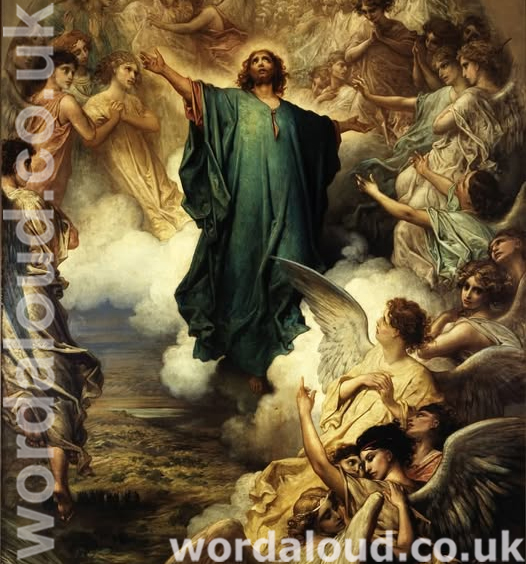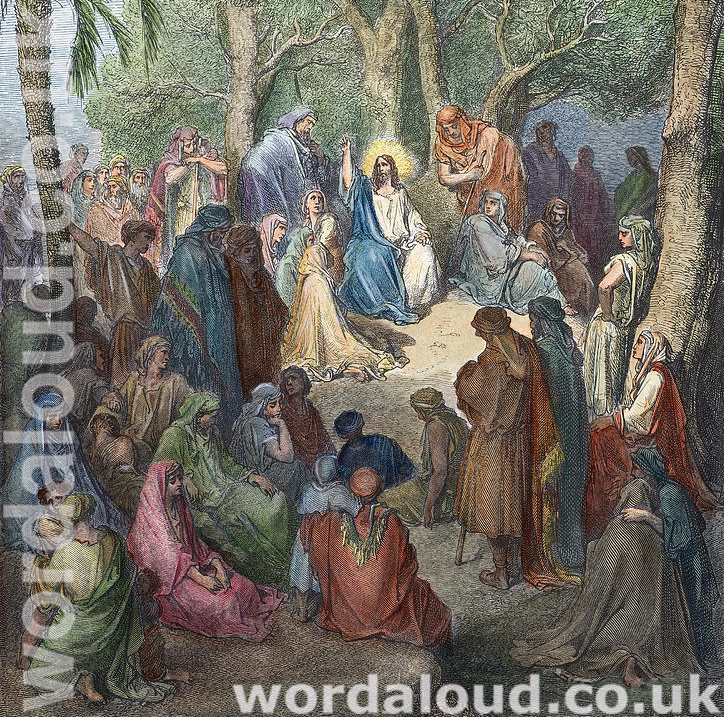Christian Art | Joy Of Jesus Christ The Risen Lord | Jesus Is King
Office Of Readings | Week 32, Thursday, Ordinary Time | A Reading From A Homily Of A Second-Century Author | The Living Church Is The Body Of Jesus Christ
‘The living Church is the body of Jesus Christ.’
The homily, continued, turns from moral exhortation to ecclesial reflection. Its central concern is the integrity of Christian witness and the reality of the Church as the living body of Christ. The homilist moves between ethical warning and theological insight, showing that the credibility of the faith depends on the coherence between confession and conduct.
The opening rebuke is direct and practical: God’s name is blasphemed among unbelievers when Christians speak with beauty but live without truth. This accusation echoes both Old Testament prophecy (cf. Isaiah 52:5) and Pauline critique (Romans 2:24). The homilist identifies hypocrisy as the greatest obstacle to evangelisation. Non-believers admire the Christian moral ideal—love of enemies, mercy, self-restraint—but they are alienated when these words bear no resemblance to Christian practice. Thus, the dishonour of God’s name is not caused by open hostility but by the dissonance between the proclaimed gospel and the lived life.
From this moral ground the homily advances into theology. The homilist distinguishes between two forms of the Church—the eternal and spiritual, existing ‘before the sun and the moon’, and the visible and historical, manifest in time through Christ. The Church, in this conception, is not a human society merely organised around belief; it is a reality pre-existent in the divine will and made tangible in Christ’s incarnation. This union between the eternal and the visible underlies the moral demand placed upon believers. To belong to the Church is to participate in something sacred and primordial, and therefore one’s life must reflect its sanctity.
The homily employs nuptial and corporeal imagery to express this mystery. The male and female, drawn from Genesis, signify Christ and the Church. The body of the Church mirrors the Spirit of Christ; to defile one is to dishonour the other. The argument moves with a kind of analogical symmetry: as the body corresponds to the Spirit, so visible conduct corresponds to invisible grace. Physical and spiritual integrity are inseparable; moral failure within the body disrupts communion with the Spirit.
The text’s anthropology and ecclesiology are closely joined. The human body becomes both image and participant of the Church’s holiness. The exhortation not to ‘deface the copy’ evokes both ascetic discipline and sacramental reverence: bodily life, social order, and ecclesial belonging all express the same divine pattern. The Church is not an abstraction but a living organism animated by Christ’s Spirit. Its holiness is both given and guarded.
The reading looks toward the promise of transformation. If the Holy Spirit dwells within the body, that body receives immortality—the life of the age to come. The homilist’s tone here is sober yet expansive, touching the boundary between moral duty and mystical hope. The blessings prepared for the faithful are said to ‘surpass all human powers of description’, linking obedience in the present to glory beyond comprehension.
The homily offers a profound synthesis of ethical realism and theological vision. Christian behaviour is not merely individual morality; it is participation in the life of the Church, which itself is participation in Christ. The believer’s task is therefore to make visible, through bodily and communal integrity, the invisible holiness of the Spirit.

A Reading From A Homily Of A Second-Century Author | The Living Church Is The Body Of Jesus Christ
My name is constantly blasphemed by unbelievers, says the Lord. Woe to the man who causes my name to be blasphemed. Why is the Lord’s name blasphemed? Because we say one thing and do another. When they hear the words of God on our lips, unbelievers are amazed at their beauty and power, but when they see that those words have no effect in our lives, their admiration turns to scorn, and they dismiss such words as myths and fairy tales.
They listen, for example, when we tell them that God has said: It is no credit to you if you love those who love you, but only if you love your enemies, and those who hate you. They are full of admiration at such extraordinary virtue, but when they observe that we not only fail to love people who hate us, but even those who love us, they laugh us to scorn, and the Name is blasphemed.
Therefore, brothers, if we do the will of God the Father, we shall be members of the first spiritual Church that was created before the sun and the moon; but if we fail to do the will of the Lord, we shall be among those to whom it is said in Scripture: My house has been made into a robbers’ den. We must choose then, if we want to be saved, to be members of the Church of life.
You surely cannot be ignorant of the fact that the living Church is the body of Christ; for Scripture says: God made man male and female. Now the male signifies Christ, and the female signifies the Church, which, according to both the Old and the New Testament, is no recent creation, but has existed from the beginning. At first the Church was purely spiritual, even as our Jesus was spiritual, but it appeared in the last days to save us.
For the spiritual Church was made manifest in the body of Christ, in order to show us that if we uphold its honour in the outward, visible form, and do not defile it, we shall, through the Holy Spirit be made its members in the true, spiritual sense. For the body of the Church is a copy of the Spirit, and no one who defaces the copy can have any part in what the copy represents. In other words, brothers, you must preserve the honour of the body in order to share in the Spirit. For if we say that the body is the Church and the Spirit is Christ, it follows that anyone who dishonours his body, dishonours the Church. Such a man will have no part in the Sprit, which is Christ. But if the Holy Spirit is joined to it, this body can receive an immortal life that is wonderful beyond words, for the blessings God has made ready for his chosen ones surpass all human powers of description.
Christian Prayer With Jesus Christ
Lord Jesus Christ,
you are the head and life of your body, the Church.
Keep us faithful in word and indeed,
that your name may never be blasphemed through our fault.
Make your Spirit dwell within us,
that our lives may reflect your holiness
and our bodies may honour the mystery we profess.
Unite us, visible and invisible,
in the communion of your love,
until, transformed by your Spirit,
we share in the glory prepared for your saints,
who live and reign with you and the Father,
one God, now and forever.
Amen.
Glossary Of Christian Terms
Analogy – A form of reasoning by comparison; here used to express the relation between the visible Church and the invisible Spirit.
Anthropology – The theological understanding of the human person, body and soul, in relation to God.
Ascetic – Pertaining to disciplined self-restraint as a means of spiritual formation.
Ecclesiology – Theology of the Church’s nature, origin, and purpose.
Hypocrisy – The failure to live according to one’s professed beliefs; a recurring concern of early Christian moral teaching.
Incarnation – The act by which the eternal Word of God became human in Jesus Christ.
Integrity – Wholeness or moral coherence between belief and behaviour.
Nuptial imagery – Symbolic use of marriage to describe the union between Christ and the Church.
Sacramental – Relating to visible signs that mediate divine grace.
Theophany – Manifestation of the divine within the visible order; implicit in the Church’s embodiment of Christ.







